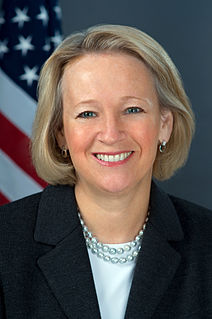A Quote by Seth Klarman
Successful investors tend to be unemotional, allowing the greed and fear of others to play into their hands. By having confidence in their own analysis and judgement, they respond to market forces not with blind emotion but with calculated reason. Successful investors, for example, demonstrate caution in frothy markets and steadfast conviction in panicky ones. Indeed, the very way an investor views the market and it’s price fluctuations is a key factor in his or her ultimate investment success or failure.
Quote Topics
Allowing
Analysis
Blind
Calculated
Caution
Confidence
Conviction
Demonstrate
Emotion
Example
Factor
Failure
Fear
For Example
Forces
Greed
Hands
Having
Her
His
Indeed
Investment
Investment Success
Investor
Investors
Judgement
Key
Market
Market Forces
Markets
Others
Own
Play
Price
Reason
Respond
Steadfast
Success
Success Or Failure
Successful
Tend
Ultimate
Unemotional
Very
Views
Way
Related Quotes
Too often, investors are the target of fraudulent schemes disguised as investment opportunities. As you know, if the balance is tipped to the point where investors are not confident that there are appropriate protections, investors will lose confidence in our markets, and capital formation will ultimately be made more difficult and expensive.
The ability to change one's mind is probably a key characteristic of the successful investor. Dogmatic and rigid personalities rarely, if ever, succeed in the markets. The markets are a dynamic process, and sustained investment success requires the ability to modify and even change strategies as markets evolve.
We are convinced that the intelligent investor can derive satisfactory results from pricing of either type (market timing or fundamental analysis via price). We are equally sure that if he places his emphasis on timing, in the sense of forecasting, he will end up as a speculator and with a speculator's financial results." And "The speculator's primary interest lies in anticipating and profiting from market fluctuations. The investor's primary interest lies in acquiring and holding suitable securities at suitable prices.
The investor has the benefit of the stock market's daily and changing appraisal of his holdings, 'for whatever that appraisal may be worth', and, second, that the investor is able to increase or decrease his investment at the market's daily figure - 'if he chooses'. Thus the existence of a quoted market gives the investor certain options which he does not have if his security is unquoted. But it does not impose the current quotation on an investor who prefers to take his idea of value from some other source.
Value in relation to price, not price alone, must determine your investment decisions. If you look to Mr Market as a creator of investment opportunities (where price departs from underlying value), you have the makings of a value investor. If you insist on looking to Mr Market for investment guidance however, you are probably best advised to hire someone else to manage your money.
There are two kinds of investors, be they large or small: those who don't know where the market is headed and those who don't know what they don't know. Then again, there is a third type of investor: the investment professional, who indeed knows he doesn't know, but whose livelihood depends upon appearing to know.
The value of market esoterica to the consumer of investment advice is a different story. In my opinion, investment success will not be produced by arcane formulae, computer programs or signals flashed by the price behavior of stocks and markets. Rather an investor will succeed by coupling good business judgment with an ability to insulate his thoughts and behavior from the super-contagious emotions that swirl about the marketplace.
I feel like I went through the Great Depression. All these companies are being successful around you, you're on that track, and then the market collapses, and you're out of a job. You're trying to save your investors' investment, and it doesn't work, and you sell the company for nothing. It was brutal.
Rip Van Winkle would be the ideal stock market investor: Rip could invest in the market before his nap and when he woke up 20 years later, he'd be happy. He would have been asleep through all the ups and downs in between. But few investors resemble Mr. Van Winkle. The more often an investor counts his money - or looks at the value of his mutual funds in the newspaper - the lower his risk tolerance.
Just as outright euphoria is often a sign of a market top, fear is for sure a sign of a market bottom. Time and time again, in every market cycle I have witnessed, the extremes of emotion always appear, even among experienced investors. When the world wants to buy only treasury bills, you can almost close your eys and get long stocks.
The New Finance focused on the market's major systematic mistake. In failing to appreciate the strength of competitive forces in a market economy, it over estimates the length of the short run. In doing so, it overreacts to records of success and failure for individual companies, driving the prices of successful firms too high and their unsuccessful counterparts too low.
































